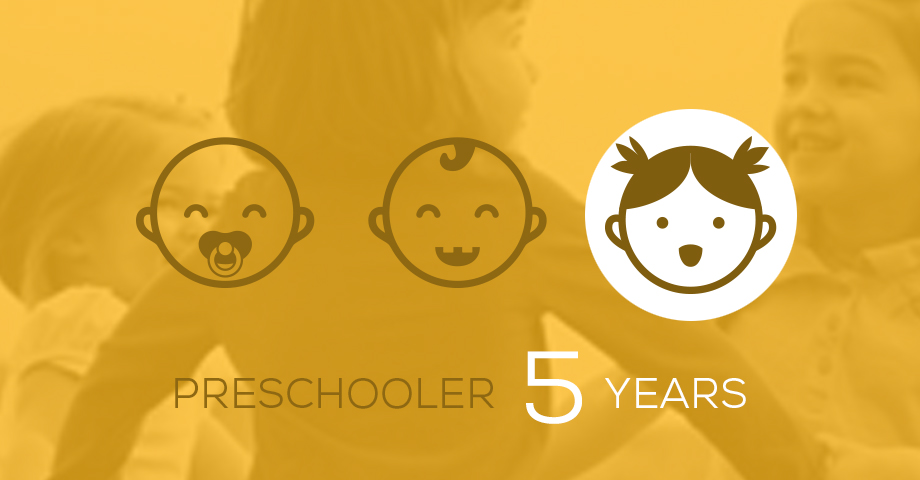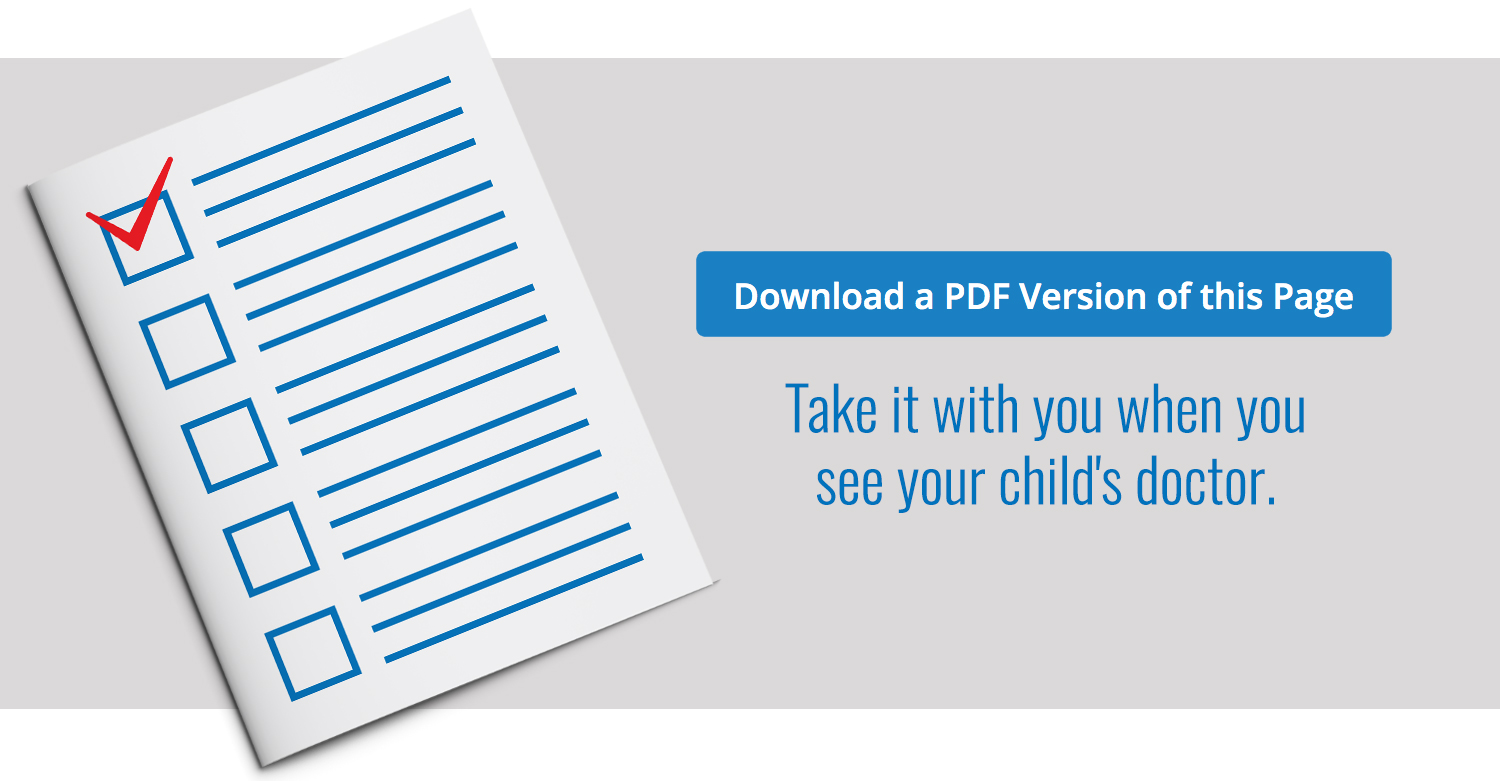
How your child plays, learns, speaks, acts and moves offers important clues about your child’s development. Developmental milestones are the things most children (75% or more) can do by a certain age.
Check the milestones your child has reached by age 5, and talk with your child’s doctor at every visit about the milestones your child has reached and what to expect next.

What Most Children Do at This Age:
Social / Emotional
- Follows rules or takes turns when playing games with other children
- Sings, dances, or acts for you
- Does simple chores at home, like matching socks or clearing the table after eating
Language / Communication
- Tells a story she heard or made up with at least two events. For example, a cat was stuck in a tree and a firefighter saved it
- Answers simple questions about a book or story after you read or tell it to him
- Keeps a conversation going with more than three back-and-forth exchanges
- Uses or recognizes simple rhymes (bat-cat, ball-tall)
Cognitive (learning, thinking, problem-solving)
- Counts to 10
- Names some numbers between 1 and 5 when you point to them
- Uses words about time, like “yesterday,” “tomorrow,” “morning,” or “night”
- Pays attention for 5 to 10 minutes during activities. For example, during storytime or making arts and crafts (screen time does not count)
- Writes some letters in her name
- Names some letters when you point to them
Movement / Physical Development
- Buttons some buttons
- Hops on one foot
5 Year Visit: A Great Big World
The Sparks videos are designed to deliver important information on behavior, development, nutrition, safety, and common medical questions. To get more videos like this, text SPARKS to 1-844-650-1210 or visit www.sparksvideoseries.com to learn more.
The Sparks Parent Video Series was created by The Mount Sinai Parenting Center in collaboration with Zero to Three and the Brazelton Touchpoints Center with the help of experts across the country.
Other Important Things to Share with the Doctor |
||
|
||
Concerned about your child’s development?
You know your child best. Don’t wait. If your child is not meeting one or more milestones, has lost skills he or she once had, or you have other concerns, act early. Talk with your child’s doctor, share your concerns, and ask about developmental screening.
If you or the doctor are still concerned:
- Ask for a referral to a specialist who can evaluate your child more; and
- Call your state or territory’s early intervention program to find out if your child can get services to help. Learn more and find the number at cdc.gov/FindEI.
For more on how to help your child, visit cdc.gov/Concerned.
Help Your Child Learn and Grow.
Content provided by the Centers for Disease Control and Prevention’s “Learn the Signs. Act Early.” material and are not a substitute for a standardized, validated developmental screening tool.



